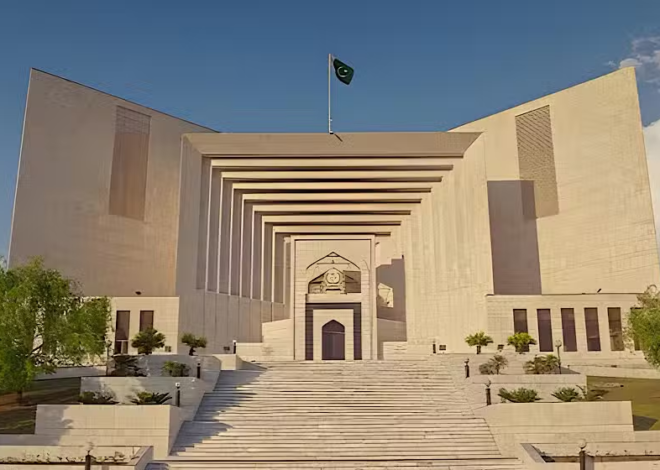
An IMF Loan is Considered a Major Economic Great Milestone Only in Pakistan
In most countries, securing a loan from the International Monetary Fund (IMF) is a moment of economic reckoning—a signal of deep financial distress. Yet, in Pakistan, it is often heralded as a major milestone. This paradoxical celebration underscores the nation’s unique economic trajectory and political narrative. While IMF programs elsewhere are associated with austerity, reform, and public backlash, Pakistan’s political elite routinely frame these bailouts as diplomatic victories or economic turning points. This divergence reveals not just Pakistan’s chronic instability but also a troubling normalization of crisis management over sustainable progress.
The Global Stigma of IMF Loans
Globally, IMF loans are viewed as a last resort. Countries like Greece during the Eurozone crisis or Argentina amid its recurring debt defaults sought IMF assistance under duress, often sparking protests against stringent conditions like tax hikes, subsidy cuts, and privatization. For these nations, an IMF deal is a humbling admission of policy failure, a Band-Aid for systemic flaws. The loans come with invasive oversight, eroding national sovereignty and fueling public resentment. In contrast, Pakistan’s political landscape has turned this narrative on its head.
Pakistan’s Dance with the IMF: A Recurring Affair
Since joining the IMF in 1950, Pakistan has entered 23 loan programs, averaging a new bailout nearly every three years. Each agreement follows a familiar script: dwindling foreign reserves, a collapsing currency, and fears of default force the government to seek help. The IMF then mandates reforms—tax increases, energy sector adjustments, austerity measures—that successive governments delay implementing, leading to cyclical crises.
Yet, rather than treating these loans as emergencies, Pakistani leaders often spin them as achievements. For instance, the 2019 6billionExtendedFundFacilitywashailedasa“historicagreement”bythen−PrimeMinisterImranKhan,despiteitdemandingpainfulreforms.Similarly,therecent6billionExtendedFundFacilitywashailedasa“historicagreement”bythen−PrimeMinisterImranKhan,despiteitdemandingpainfulreforms.Similarly,therecent3 billion standby arrangement in 2023 was branded a “success” by the ruling coalition, even as inflation soared to 38%.
Why Pakistan Celebrates the Inevitable
Several factors explain this anomaly. First, Pakistan’s economy is structurally fragile, reliant on external financing to bridge fiscal and current account deficits. With chronic tax evasion, loss-making state enterprises, and energy sector debts, the threat of default looms large. Securing an IMF loan thus becomes a survival tactic, allowing leaders to claim they’ve “averted disaster.”
Second, geopolitical leverage plays a role. Pakistan’s strategic position—whether as a U.S. ally during the Cold War or a partner in counterterrorism—has historically softened IMF conditions. Support from allies like China and Saudi Arabia, who often provide bridge financing to meet IMF benchmarks, further enables this cycle. Politicians exploit this lifeline to project competence, framing the loan as a testament to their diplomatic clout rather than a policy failure.
Third, public perception is manipulated. Media narratives emphasize the IMF’s stamp of approval as a sign of global confidence, downplaying the austerity tied to it. The real pain—currency devaluation, inflation, subsidy cuts—is deferred or blamed on external factors, shielding leaders from accountability.
A Dangerous Precedent
Treating IMF loans as milestones masks deeper dysfunction. It normalizes a pattern where short-term fixes overshadow long-term reforms. Each bailout temporarily stabilizes the economy but fails to address root causes: a narrow tax base, elite capture of resources, and poor governance. For instance, despite decades of IMF programs, Pakistan’s tax-to-GDP ratio remains a dismal 9%, among the world’s lowest.
Moreover, the celebratory rhetoric discourages innovation. Why pursue politically risky reforms when another loan is around the corner? This complacency traps Pakistan in a vicious cycle of dependence, stifling homegrown solutions.
Contrasting Global Realities
Compare this to Sri Lanka, which faced protests and political upheaval after its 2022 default, or Argentina, where IMF deals are electoral liabilities. In these nations, civil society holds leaders accountable for austerity. Pakistan’s passive acceptance of IMF conditions as “progress” highlights a troubling disconnect between governance and public welfare.
Conclusion: Breaking the Cycle
Pakistan’s IMF milestone mindset is a symptom of deeper malaise. True economic milestones would include expanding the tax net, restructuring state-owned enterprises, or attracting export-led investment—not another bailout. Until leaders prioritize structural change over ceremonial victories, Pakistan will remain trapped in a loop where crisis management is mistaken for progress. The real achievement will be the day the nation no longer needs an IMF loan to survive.







